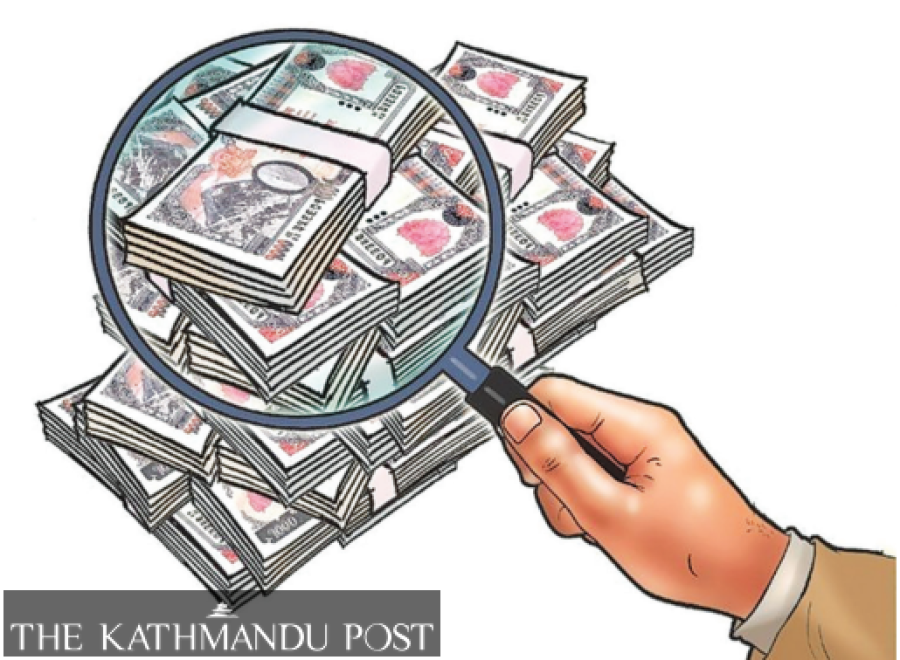National
Over 100 days since taking office, ministers yet to disclose their assets
Campaigners say revealing property is first step for public position holders to show they are transparent and fair.
Binod Ghimire
The Corruption Prevention Act, 2002 makes it mandatory for all public position holders to submit their property details within 60 days of joining government service. It applies to all elected people’s representatives, those leading governments and government employees.
Ever since the restoration of democracy in 1990, there has been the practice of the prime minister and ministers making public their property details after submitting reports to the Council of Ministers.
However, 100 days have passed since the formation of the Sher Bahadur Deuba government, but the prime minister and four of his ministers appointed on July 13 are yet to publish their property details. The separate section on the website of the Office of the Prime Minister and Council Ministers meant for posting the property details is blank.
Top public position holders need to submit their property details to their respective offices and the National Vigilance Centre has the authority to monitor if they have done that. The centre presents its report to the Commission for Investigation of Abuse of Authority by mid-May along with the property details while also listing those who haven’t submitted their property reports.
Rajendra Acharya, the under-secretary at the Centre who leads the department collecting such details, said they had no information if Deuba and his ministers had submitted their property details within the deadline.
“We are unaware if the prime minister and other ministers have submitted the details. We will inquire with the prime minister’s office before preparing the report for the commission,” said Acharya. “There is the practice of those in the government making public their property details after submitting them.”
Along with Deuba, Minister of Home Affairs Bal Krishna Khand; Minister for Information and Communication Technology Gyanendra Bahadur Karki; Minister for Energy, Water Resources and Irrigation Pampha Bhusal; Minister for Finance Janardan Sharma; and Umesh Shrestha, a state minister with a responsibility at the prime minister’s office, have completed their 60 days in office.
Clause 50 (2) of the Act allows additional 30 days for the submission, if there are reasons for the delay. The six ministers including Deuba have completed more than that period after taking charge.
Officials at the Prime Minister’s Office claim that they have received the property details and will make them public soon. “The property details have been submitted, so far as I know,” Bishnu Ghimire, an under-secretary at the Prime Minister’s Office, told the Post. “We will make them public.”
Anti-corruption activists say there should be no reason not to make the property details public if they have been submitted as claimed by Ghimire. “Why hasn’t the Prime Minister’s Office made the details public if reports have been submitted,” questioned Shree Hari Aryal, former chief of Transparency International Nepal. “This shows the lack of transparency in those in power.”
Nepal’s position on the latest Corruption Perception Index was downgraded by four places last year from 2019. Nepal slipped to 117th position in 2020 from 113th, indicating a rise in corruption.
Aryal said the provision to submit the property details and the practice to make them public are to maintain transparency. He said those assuming public roles have the responsibility towards the people to show that they are transparent and fair.
“Absence of transparency promotes corruption. And our leadership always looks for loopholes to keep things secret,” he said. Those advocating transparency say the political leadership has the responsibility to lead by examples. If they keep property details secret, others will follow suit, the campaigners argue.
The vigilance centre found 15,000 officials not presenting their property details in the previous fiscal year. They were fined by the constitutional anti-graft body. Article 50 (2) of the Act says those not submitting their property reports are liable to a fine of Rs5,000 and the concerned body or official may investigate them on the suspicion that they could possess illegal property.
Transparency activists say it is unfortunate that even those in the government are reluctant to make their property reports public while there are voices that even the leadership of the judiciary and other government agencies should let the public know what cash, goods and valuables they own.
Former army chief Purna Chandra Thapa set the trend by announcing his property while assuming office and after retirement. However, except those in the federal and provincial governments, others haven’t been making their assets public.
Former secretary Khem Raj Regmi said political parties always talk about ending corruption but they are the ones who never stand for transparency. “Those leading the government have access to the state coffers. It is, therefore, the right of the people to know about their property,” he told the Post. “Unwillingness to reveal possessions gives room for suspicion.”
Deuba’s predecessors were also late in making their property details public. Former prime ministers KP Sharma Oli and Pushpa Kamal Dahal had made their assets public after much criticism. Even Deuba in 2017 hadn’t made the details public before being criticised.
“It is necessary to pressure not just the political leadership but those from other state organs and government agencies as well to make their property details public,” said Regmi.




 13.12°C Kathmandu
13.12°C Kathmandu














